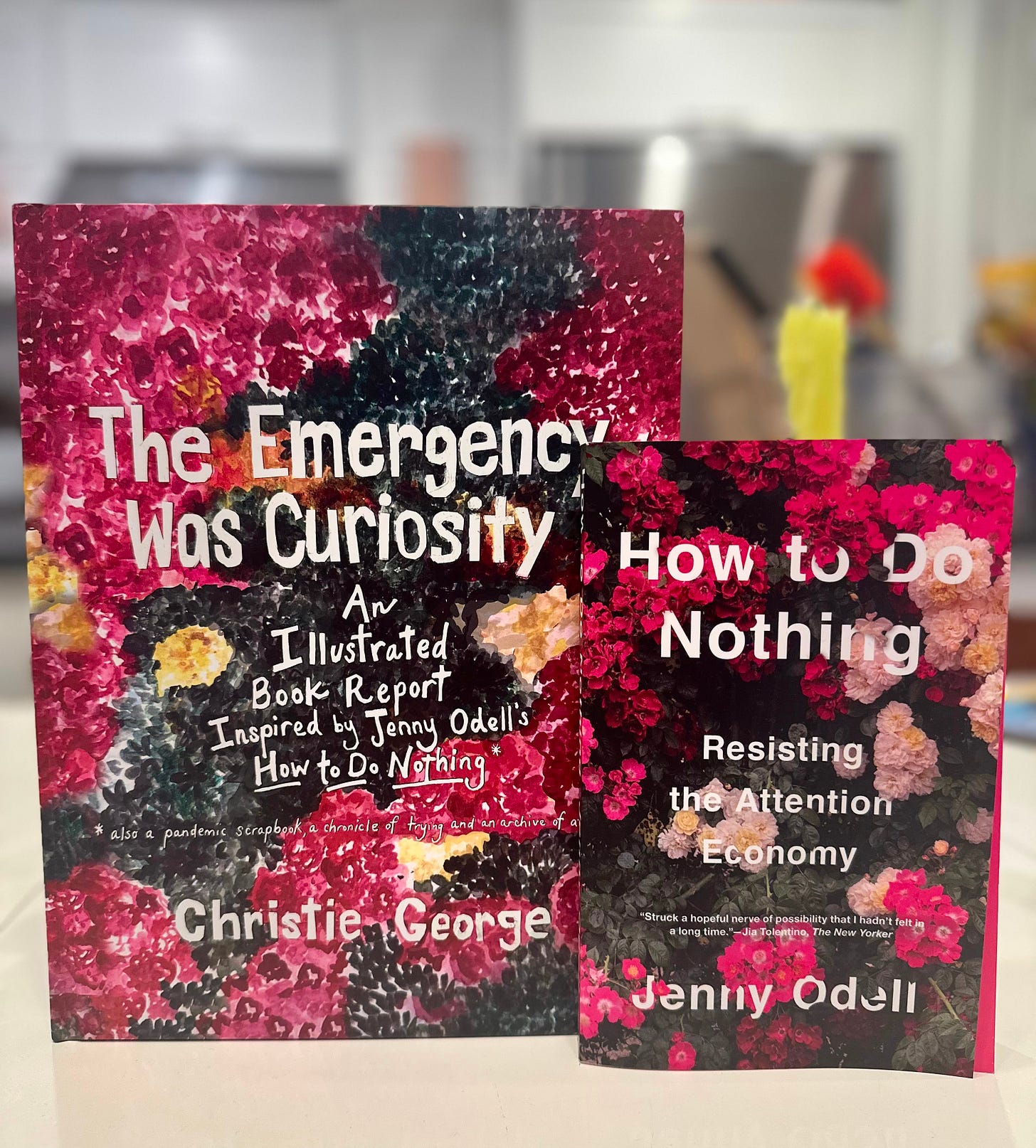
When I was a kid, summertime looked like long, languid days outside in the sun and the dirt, that faded into warm nights with fireflies and patio barbecues. I don’t know if day camps were a thing in the 1980s in big cities or on the East Coast, but in small-town, central Illinois where I grew up, day camps were most definitely not a thing. Summers were filled with a lot of nothing. I remember my brother and I one time digging a hole in our yard, attempting to reach either water or China (we reached neither, I’m sure you’ll be surprised to learn). One summer we made fried bologna sandwiches for construction workers who were doing repairs on the road near our house (no idea why we decided to make fried bologna sandwiches instead of something normal like lemonade, but there you have it). Most of the time we rode our bikes around our driveway and played hide and seek. My mom worked at the family business, so she had the luxury to usually take all or most of the summers off while we weren’t in school. She’d tend to our (her) vegetable garden, make lemonade, and take us to the town’s public pool. Sometimes she’d lay out in the driveway with baby oil coating her skin, working on that golden tan. (What can I say, seatbelts and SPFs not really that popular back then.) All the TV shows were on summer hiatus, so there was nothing to watch. I loved sinking deep into a pile of books every summer.
Summers were lazy. They weren’t productive. They weren’t seen as time to broaden horizons or explore extracurricular interests. They weren’t meant to pad school applications. They just were.
My son’s summers have not been like mine. There is no digging to China or selling fried bologna sandwiches for him. Every February or so, I start to look online for the deadlines for various day camp sign-ups, and then by April, his summer is set with camps filling up the weeks until it’s time to go back to school. Part of this is just the fact of needing childcare, although that’s less of an issue now that he’s 12. But it’s also cultural – pretty much all of his peers go to some kind of camp, either a day camp or sleepaway camp, for most of the summer. Even if streaming didn’t give us any show at our fingertips at any time, these kids all have their devices now to play games on and text each other and whatever else they do.
My summers are not like my mom’s were. There is no laying in the driveway working on my tan for me or spending whole days at the public pool. Instead, I have my summer project list. (As we’ve covered, I’m a consummate listmaker.) What, you ask, is on my summer 2025 project list? Well, let me tell you:
Clean out and organize the front hallway closet
Deal with weeds and I don’t even know what else is out there on the terrace
Declutter apartment (HAHAHAHAHA)
Reorganize basement storage unit
Organize son’s unwieldy book and Lego situation
Networking coffees & meetings
Figure out this newsletter and what I want to do with it
Work on book I’ve been working on forever
Spend as much quality time as possible with my kid
Figure out why so many things hurt when I run
Try to become “AI literate” (also HAHAHAHAHA)
Go hiking upstate
Make all the berry pies
About a month ago, as I was eyeing the calendar and realizing my son was almost done with school, I also read “The Emergency Was Curiosity” by
. I’d been introduced to this book and to Christie by a friend we had in common who had a feeling I’d vibe with what Christie’s up to (he was right).How can I describe “The Emergency Was Curiosity” (“TEWC”)? It’s essentially a zine inspired by “How to Do Nothing: Resisting the Attention Economy” by Jenny Odell that Christie made during the pandemic. I read “How to Do Nothing” back when it came out in 2019 and had gotten a lot from it at the time (I thought), but of course, life happens. Basically, Odell decries the attention economy that requires all of us to constantly give our attention over to the frameworks and trappings of capitalism and constant profit maximizing, leading to a culture (cult?) of productivity and information overload. In TEWC, Christie documents her reactions to reading Odell’s book while she was on maternity leave and the creative projects she played with during the early part of the pandemic when many of us were stuck at home.

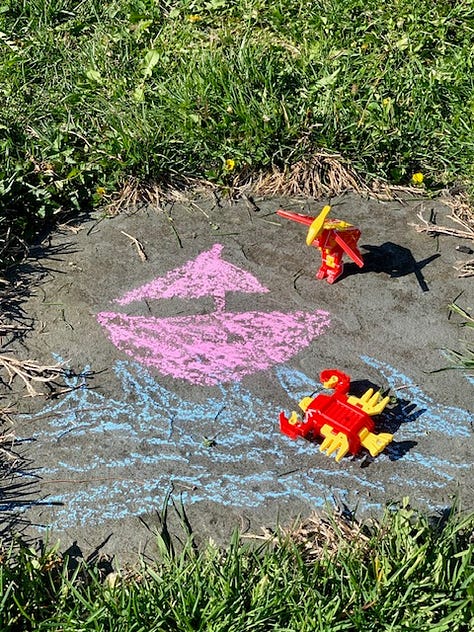
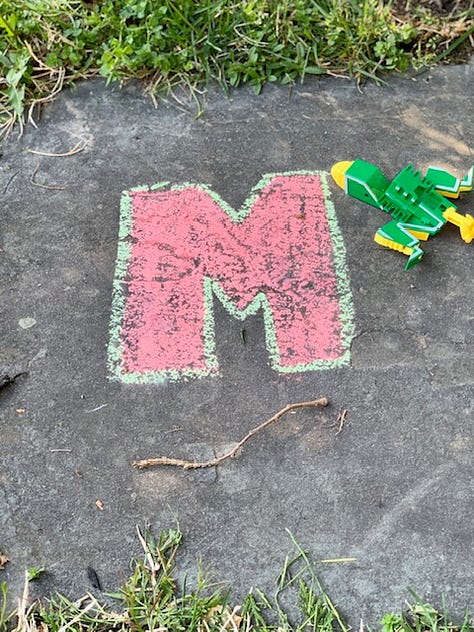
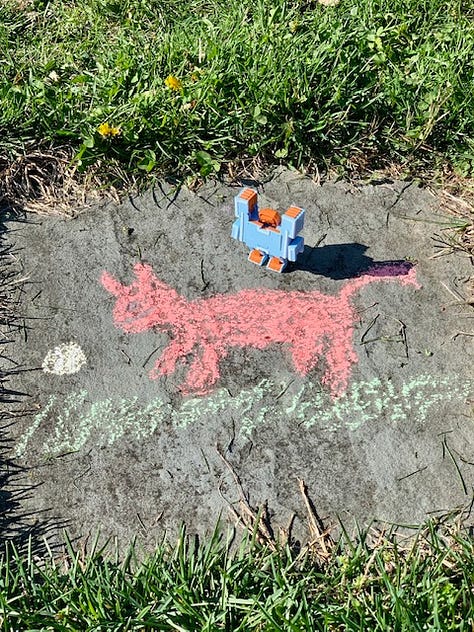
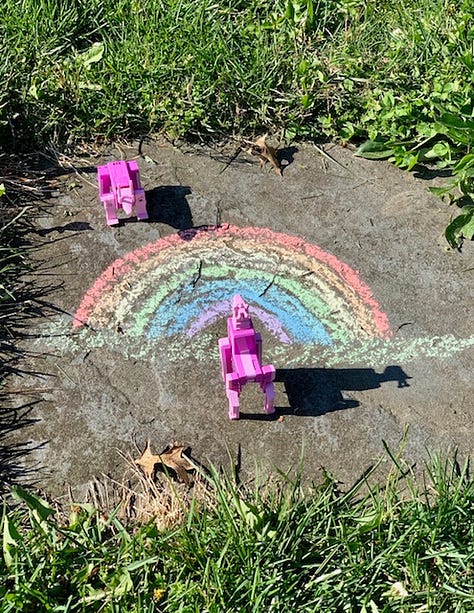
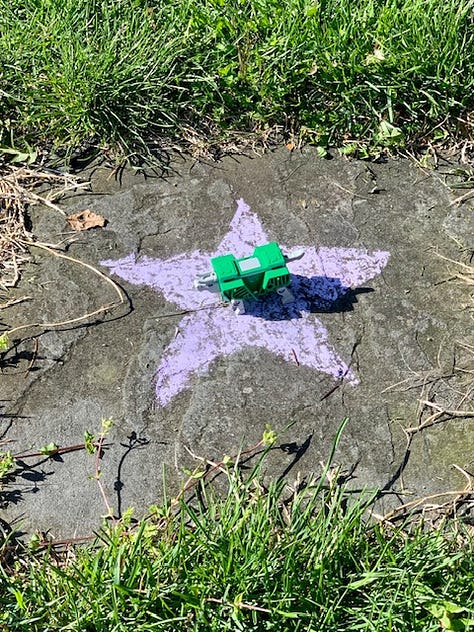
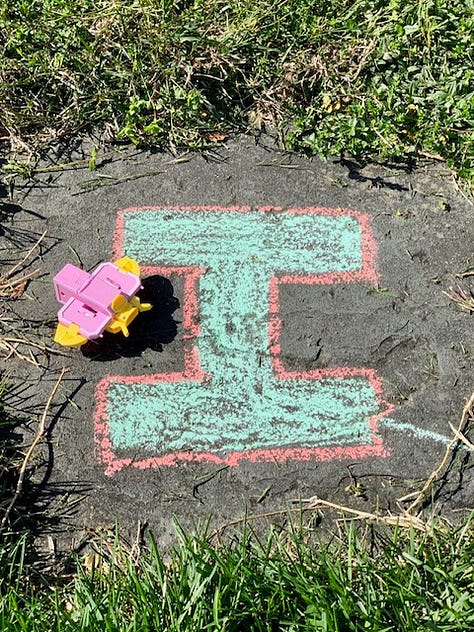
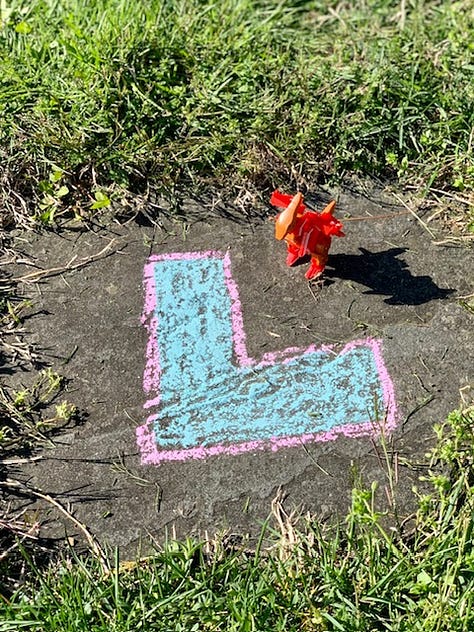
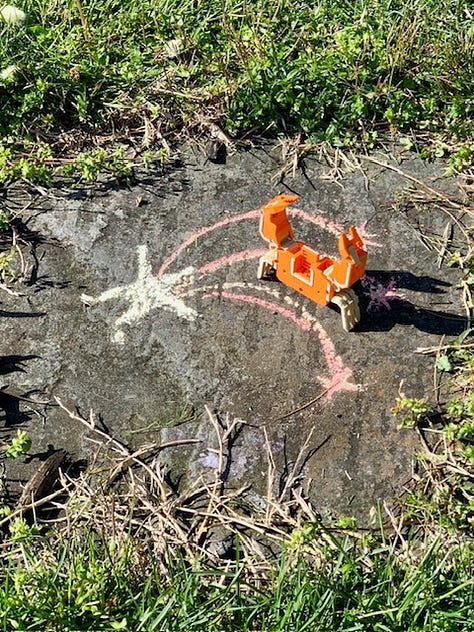
As I was flipping through TEWC, enchanted by Christie’s drawings and analog projects, I had a revelation: My summer project list is stupid. So completely stupid. I don’t want to organize closets, I actually like the clutter in my apartment, and I don’t really care about the weeds on the terrace. I don’t need to perfect a blueberry pie or force myself into the woods upstate. Why was I putting all my attention into this? Why couldn’t I just have one summer of “doing nothing”? Why did I feel like I had to be productive 12 months of the year?
“What doing nothing means right now [to me] is some degree of being intentional or mercenary around my own consumption online,” Christie told me when I recently had a chance to chat with her about TEWC. She writes in TEWC about the idea of “uselessness,” which feels almost unbearably at odds with the goal-oriented, achievement-focused culture I’ve marinated in for the last 30 years. The idea of doing something that has, quite literally, no use to it is a hard one to fathom for so many of us. It goes to the very value that we put on our selves and our lives and our time. Do I have value as a person if the only things I am “doing” are “useless”? Are our lives worthwhile if we’re not spending them being “useful” in some capacity? Is the simple fact of existing worth something?
As Christie writes in TEWC, “I’ve struggled between the pull of doing nothing and the pull of my ambition,” yet she wants to encourage us all to take on more useless projects, she wants to give us “permission to be illegible.”
“I’m kind of interested in a worldview that calls out that culture of expectation that you and I were raised in for the scam that it is,” Christie said when we spoke. “There are so many systems in this country that we’re like, if you do these things, you will get this life. And that just sort of turns out not to be true.”
Maybe, Christie suggested, uselessness is only considered “useless” because it’s useless to “the machine of capitalism.”
What would doing nothing look like for me? Am I even capable of doing nothing? Odell writes, “For me, doing nothing means disengaging from one framework (the attention economy) not only to give myself time to think, but to do something in another framework.”
I don’t spend a ton of time on social media; it usually stresses me out, to be honest. And the social media / online framework is one that certainly feeds into the attention economy. So while there’s not much of the social media framework for me to disengage from, I am tired of my productivity framework. I don’t care about the list anymore. I’m more curious, as Christie writes, “about what captures my attention when I’m being more intentional about it (rather than when someone else is trying to bring out my ‘aspirational self’), and how much active effort on my part it may take to thwart the provocations and distractions coming in from all directions.”
What else is a summer for, other than to redirect our frameworks?
After Christie and I chatted, I looked at my summer project list again. “Nope,” I thought. What my summer of “doing nothing” looks like – i.e. where I want to redirect my attention away from capitalism and achievement and productivity – is spending as much time as possible with my kid and writing my book. That’s it. That’s all I want to do this summer.
“Ultimately, of course, doing nothing is never done. Doing nothing is more of a reorientation, a lifelong (yikes) commitment to asking questions about what you want to spend this one life paying attention to,” Christie writes. I can’t guarantee that I can shift my attention for the rest of my life, but I can give it a shot for one summer. Christie has inspired me to dive headlong into uselessness.
Maybe there will even be fireflies and fried bologna sandwiches.




I like this idea of doing nothing, and like you I have a long list of "to-dos" for the summer. Folks ask, "What are your summer plans?" or "Are you going away?" and it makes me feel like I have to have grand plans and a fabulous destination. I want to finish my manuscript revisions, and my website copy, work in my garden and go to the beach. Even that seems like alot!
Enjoy your summer with your son!